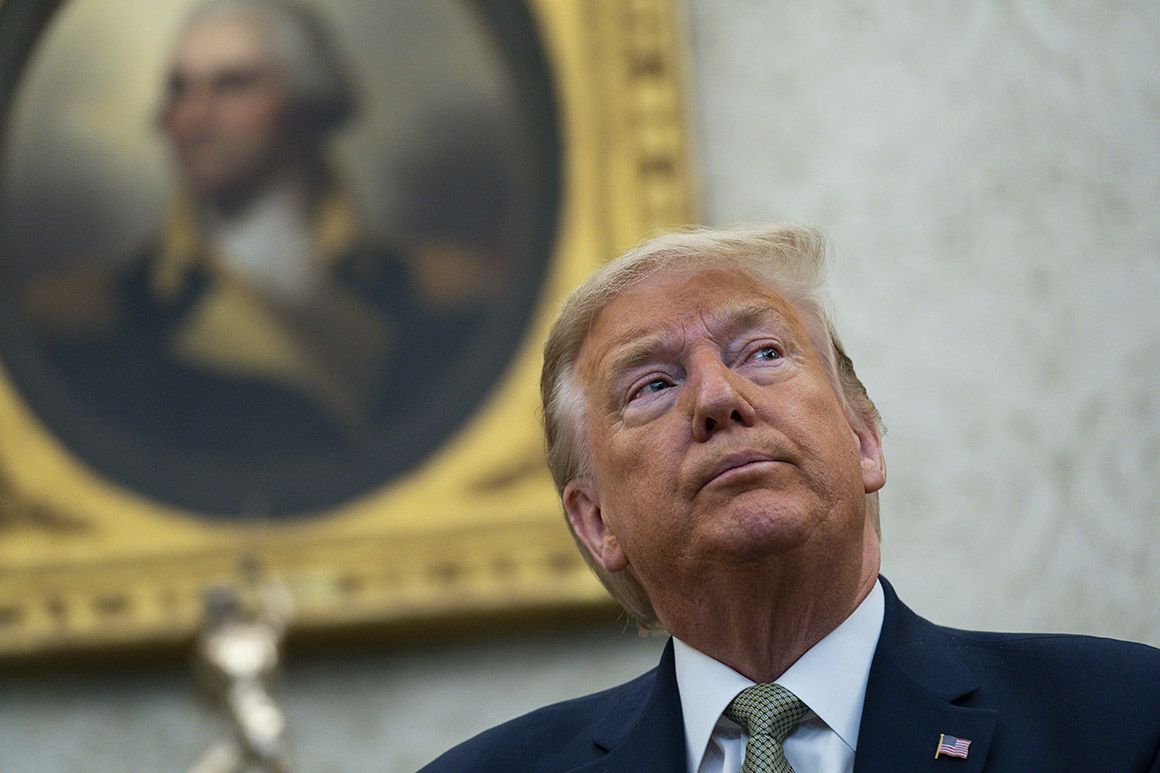
Behind the scenes, the Treasury Department and top economic officials are exploring ways to help out industries struggling financially from a rapid shutdown. They’re leaning toward some type of tax relief or deferring tax payments to provide an initial cushion — hoping to avoid a full-fledged bailout akin to the 2008 banking rescue that could prove difficult to clear past the Republican base.
“I don’t want to use the b-word,” said one senior administration official, who acknowledged the White House is looking at resources necessary — including tax relief or direct injections of funds — to offset the downturn in industries and businesses with thousands of affected employees.
“If what the airline industry says is true, then Congress really will have little choice to act or face a significant extinction moment for the airline industry,” the official added.
Trump hinted at such a move in his Oval Office address on Wednesday night, saying he had asked Treasury to defer tax payments for businesses and individuals hurt by the coronavirus, using emergency authority. “This action will provide more than $200 billion of additional liquidity to the economy,” he told Americans.
The discussions about saving U.S. businesses are separate from an ongoing debate among lawmakers and Trump officials about a stimulus program that would directly aid American workers.
In recent weeks, as the coronavirus spread across the globe, the White House has been holding calls with industry leaders to hear about their mounting challenges. Trump or Vice President Mike Pence have also met at the White House with banking and health insurance executives, representatives from pharmaceutical companies, and airline CEOs.
Allowing these industries to defer paying taxes would leave them additional cash reserves to hopefully make it through any economic downturn or prolonged lockdown due to coronavirus fears, said Stephen Moore, a distinguished visiting fellow at The Heritage Foundation and an informal economic adviser to the Trump campaign in 2016.
The quandary is who deserves the most help.
“The problem I have with this is every industry is negatively impacted,” Moore said. “Is it going to be hotels, movie theaters, airlines?”
“I have a problem with singling out certain industries at this point. I don’t like the idea of picking winners and losers,” Moore said, adding that White House aides shared the same concern. “If you do it for some, then how could you not do it for everyone?”
The hospitality and leisure industry, for example, accounts for about 11 percent of total employment over the past 20 years, according to economists at Wells Fargo Securities.
After 9/11, employment in that sector fell at a rate of roughly 13 percent, while the SARS scare in 2003 also contributed to a temporary hit to the sector, the Wells Fargo economists noted.
Analysts are closely watching employment in hospitality, transportation, food services and manufacturing — which may experience declines due to interruptions in the supply chain — for similarly large hits to business in the coming days.
Trump economic aides have been studying the way President George W. Bush propped up the airline industry after 9/11 for potential clues to how to respond.
Lobbyists for the airlines said last week it was too early for moves like an airline stabilization board. At the time they were just waiting for Congress to pass its roughly $8 billion package, which Trump signed last Friday, providing immediate support for the public health response.
Since then, coronavirus has spread rapidly over the past week in the U.S., upending local communities, large gatherings, schools and businesses. Major companies from coast to coast have asked their employees to work from home, and federal agencies have been testing out their own telework capabilities.
Source: politico.com
See more here: news365.stream






